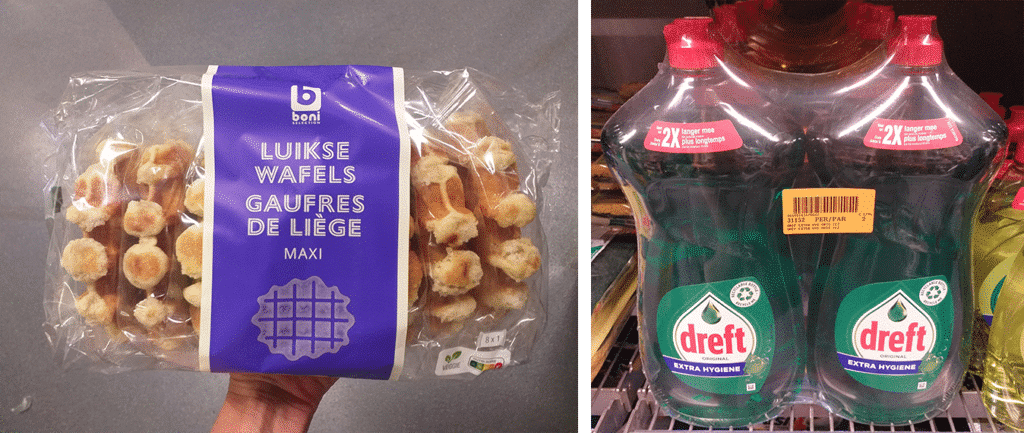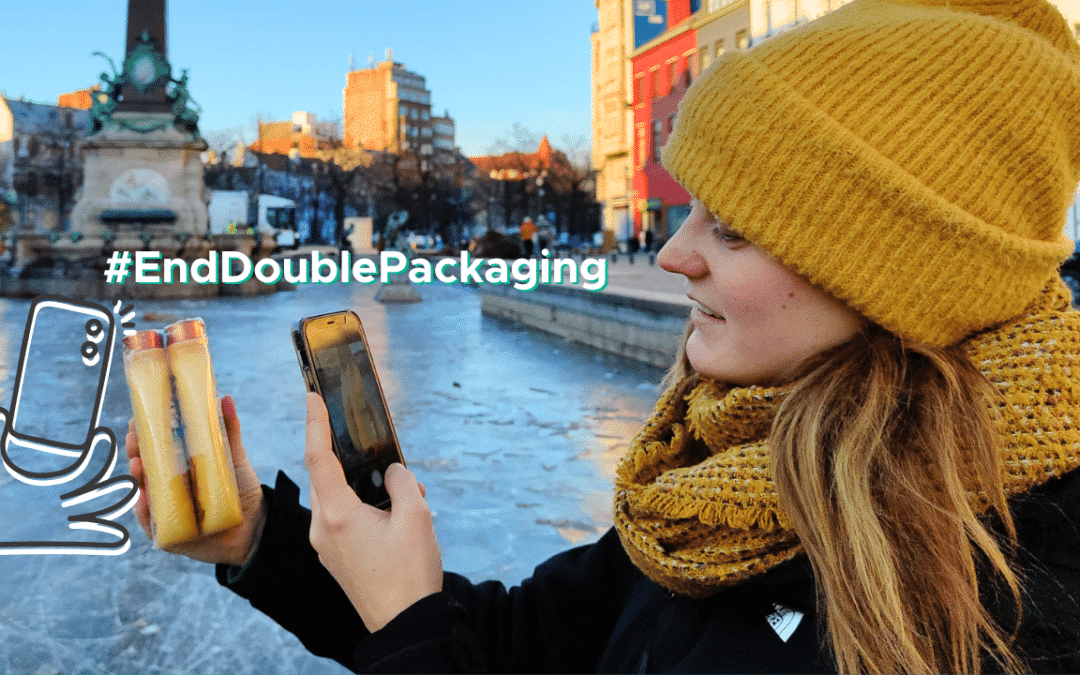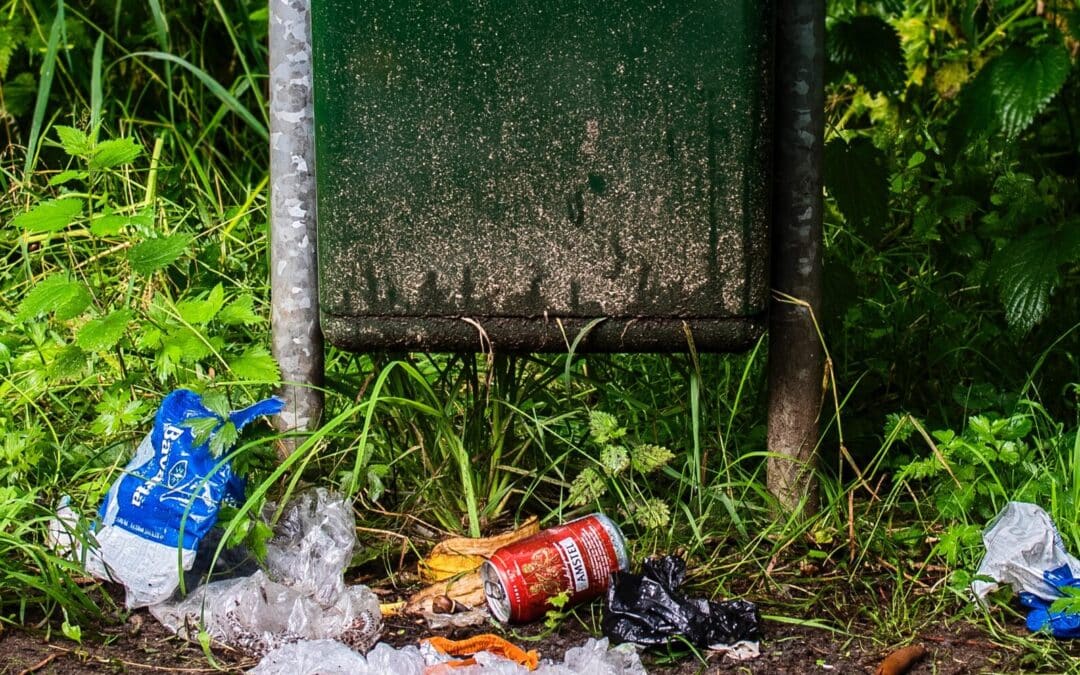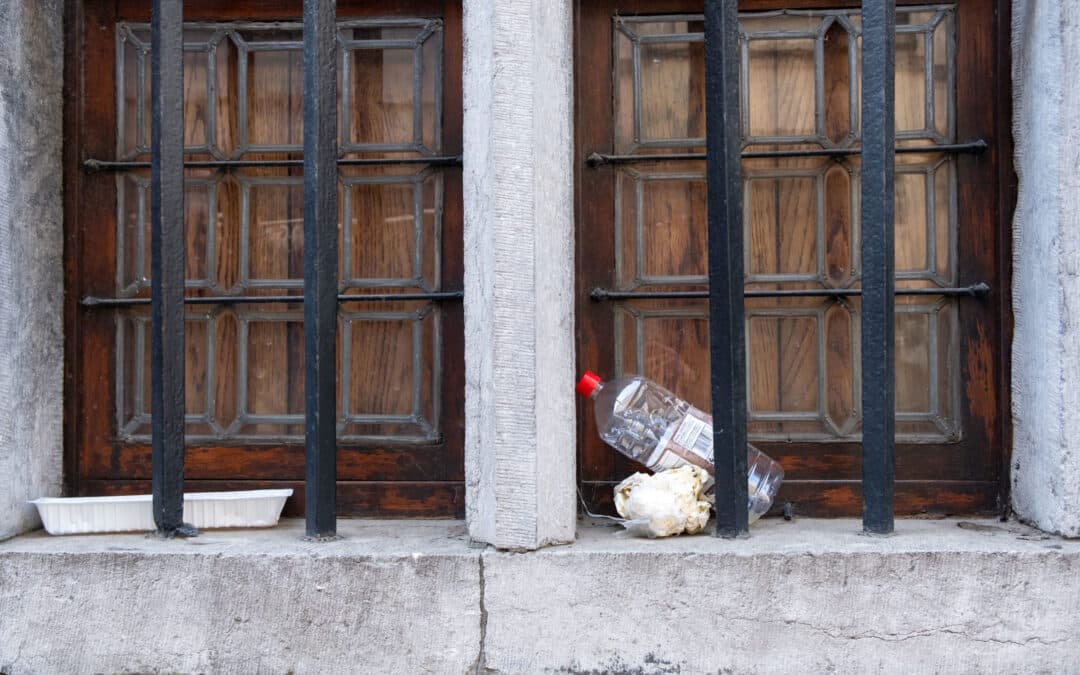Fost Plus is making no effort to reduce and make packaging more sustainable, according to research by Recycling Netwerk Benelux. Although prevention and reuse of packaging should be a priority by law, the amount of packaging is actually increasing. The Belgian governments are still not intervening. RNB urges politicians to let go of the obsession on recycling and to focus on broader sustainability of packaging.
[Press release]
To stay within the planetary boundaries, all sectors must become more sustainable. The environmental impact of the packaging sector is huge so reducing waste must be the priority. The stakes are high: if in Europe 50% of all packaging – food, drinks and household products – were reusable, this would save 3.7 MT CO2 and 28 million tonnes of material every year. Every year, an average European makes about 170 kilograms of packaging waste.
Give Fost Plus real targets
In Belgium, Fost Plus is responsible for making their packaging more sustainable on behalf of all household packaging companies. The Interregional Packaging Commission (IRPC) oversees Fost Plus on behalf of Flanders, Wallonia and Brussels. This is laid down in the Interregional Cooperation Agreement on Packaging and in Fost Plus accreditation, which expires at the end of 2023. Negotiations for a new accreditation are currently ongoing. RNB calls for prevention and reuse to be central to the new accreditation.
Rob Buurman: “The current packaging policy suits a classic linear economy. Single-use packaging is not questioned in its core, instead only collection and recycling are targeted.”
The five main findings around reuse and prevention from the report:
- The amount of packaging and therefore packaging waste is increasing per capita
- The law states that the proportion of reusable packaging versus single-use packaging may not decrease, but it has done so over the past 20 years.
- Companies are required to submit prevention plans to the IVC, but these are not made public. It is not clear what they contain and also unclear what the government does with them. It gives the impression of a bureaucratic exercise without effect or consequence.
- There is a hotline to report examples of over-packaging, but the hotline is hard to find and there seems to be no monitoring or follow-up on what is reported.
- Supervision of Fost Plus’ activities seems minimal or absent and the government does not intervene when legal requirements are not met.
Rob Buurman: “There is a lack of transparency in policy and enforcement of legal objectives. The targets and obligations are not ambitious, yet they are not even complied with or have no measurable effect.”
Recommendations
In the study, Recycling Netwerk Benelux makes a series of recommendations for policy improvements. The organisation calls for more transparency and ambitious targets for prevention and reuse. Also, at least 5% of Fost Plus’s budget should be used for reusable packaging systems, something that is already standard in France.
The study
This report is part of a broader research with the aim of taking the discussion on extended producer responsibility (EPR) for packaging to a higher level, and encouraging better policies for prevention and reuse. Several publications will follow in the coming months. The study looks at data from packaging waste and the agreements made. Contact was made with Fost Plus, the Interregional Packaging Commission and stakeholders from the waste value chain.
[End press release]
Press contacts :
Rob Buurman, rob@fairresourcefoundation.org, +31 6 16401040
Chloé Schwizgebel, chloe@fairresourcefoundation.org, +31 6 43288231




